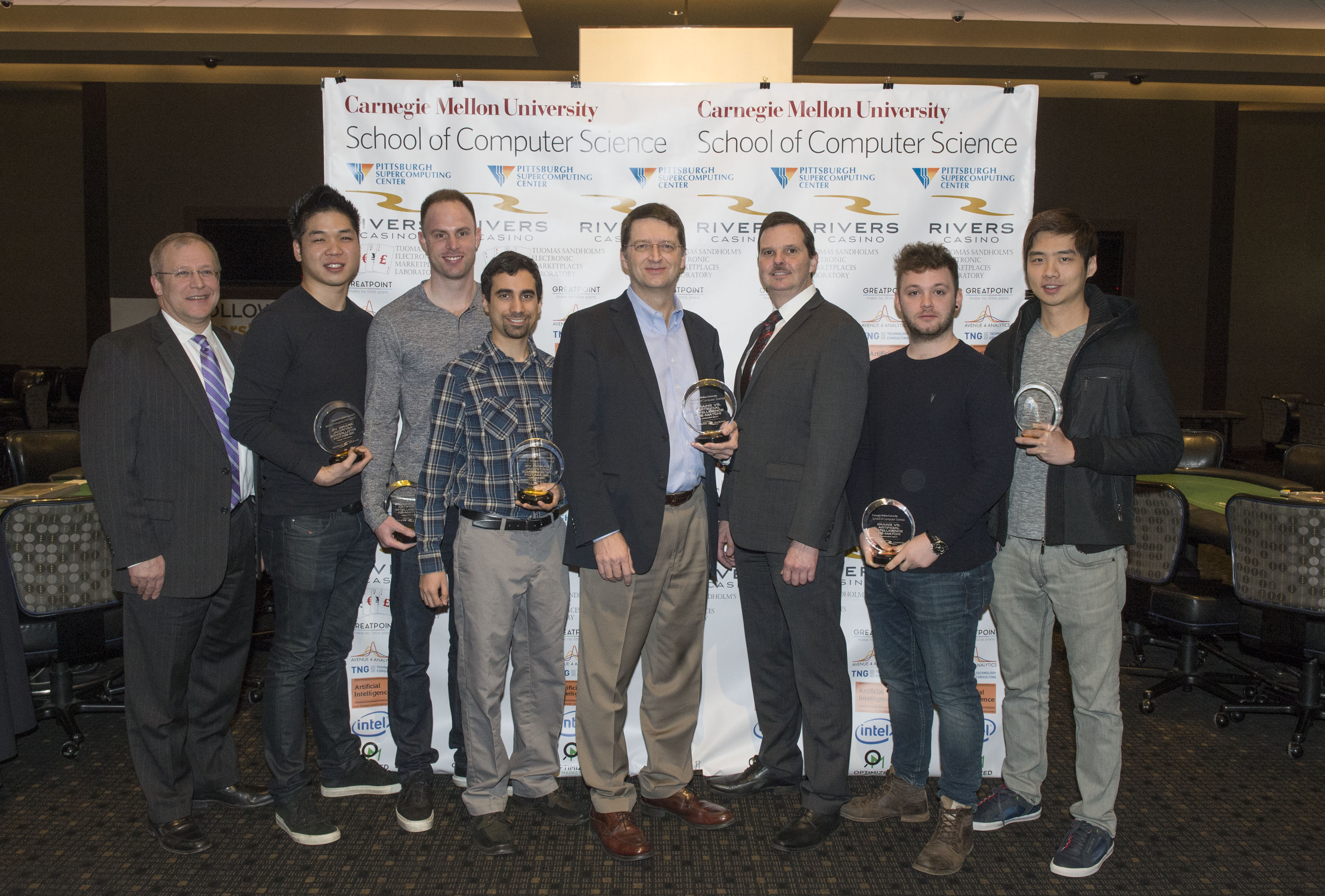Libratus live demonstration
Tuesday, August 13th, Hall A

Poker has been a challenge problem in game theory, operations research, and artificial intelligence for decades. No program had been able to beat top players in large poker games. Then in January 2017, Libratus beat a team of four top specialist pros in the main benchmark, heads-up no-limit Texas hold'em, which has 10^161 decision points. Libratus is powered by new algorithms in each of its three main modules: 1) computing approximate Nash equilibrium strategies before the event, 2) endgame solving during play, and 3) fixing its own strategy to play even closer to equilibrium based on what holes the opponents have been able to identify and exploit. The algorithms are domain-independent and have applicability to a variety of imperfect-information games such as finance, negotiation, strategic pricing, business strategy, strategic product portfolio optimization, auctions, political campaigns, cybersecurity, physical security, military, and steering evolution and biological adaptation (such as for medical treatment planning and synthetic biology). Strategic Machine, Inc. and Strategy Robot, Inc. are commercializing game-solving technologies from Prof. Tuomas Sandholm's CMU laboratory. Libratus is the culmination of two decades of research on imperfect-information game solving in the laboratory. It was developed by PhD student Noam Brown and Prof. Sandholm, who won the Minsky Medal and several other awards for this work.
In this live demonstration, Libratus will play against audience members at full strength -- running on the Bridges supercomputer at the Pittsburgh Supercomputing Center.